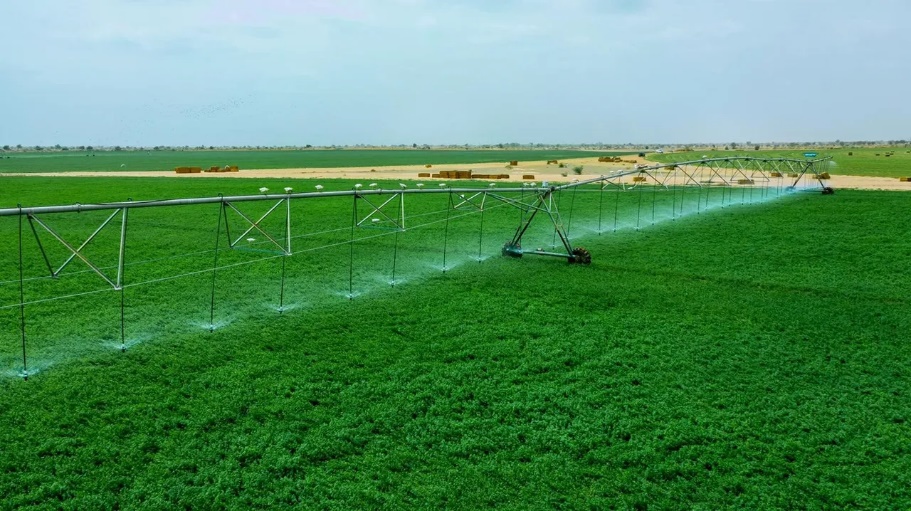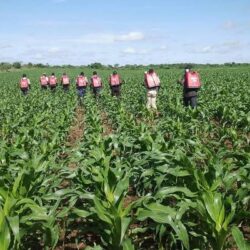Agriculture remains the lifeblood of the African economy, sustaining over 60% of the continent’s workforce. Yet, despite its dominance, food insecurity continues to plague millions, a stark contrast to the sector’s potential. Erratic weather patterns, outdated farming techniques, and economic disruptions have conspired to create a precarious food system. As we navigate the complexities of the 21st century, Africa faces a critical juncture: to embrace transformative solutions that will not only address food insecurity but also unlock the continent’s immense agricultural potential.
Climate change poses a formidable threat to African agriculture. Droughts, floods, and unpredictable weather patterns have wreaked havoc on crop yields, pushing millions to the brink of hunger. Climate-Smart Agriculture (CSA), an integrated approach that combines traditional knowledge with cutting-edge technologies, offers a beacon of hope. By incorporating drought-resistant seeds, promoting conservation agriculture, and leveraging precision farming techniques, CSA can enhance resilience and boost productivity while minimizing environmental impact.
Technology is rapidly transforming the agricultural landscape. From weather prediction apps to drone-powered crop monitoring and AI-driven data platforms, farmers are gaining access to powerful tools that enable them to make informed decisions, optimize resource use, and increase yields. Initiatives like the Alliance for a Green Revolution in Africa (AGRA) have yielded impressive results, with some farmers experiencing yield increases of up to 300% through the introduction of improved seed varieties.
However, Africa’s reliance on rain-fed agriculture remains a significant vulnerability. Expanding irrigation infrastructure is paramount. Solar-powered irrigation systems offer a sustainable and cost-effective solution, reducing reliance on diesel and minimizing environmental impact. Success stories abound: Senegal has witnessed a 20% increase in harvests thanks to solar-powered irrigation, while Morocco’s Green Plan, which expanded irrigated farmland by 50%, has significantly boosted agricultural productivity. The African Development Bank’s Desert to Power initiative, aimed at expanding renewable energy for irrigation, provides a blueprint for scaling this approach across the continent.
Financial inclusion remains a critical hurdle for many African farmers. Access to credit, insurance, and markets is often limited, hindering their ability to invest in improved inputs and expand their operations. Digital platforms are playing a crucial role in bridging this gap. Mobile money platforms like M-Pesa in Kenya have revolutionized financial access, empowering farmers to easily purchase inputs and manage their finances. Innovative platforms like Hello Tractor in Nigeria are transforming the agricultural landscape by providing access to affordable mechanization services, increasing efficiency and reducing costs.
The African Continental Free Trade Area (AfCFTA) presents a unique opportunity to unlock the continent’s agricultural potential. By reducing trade barriers and improving market access, the AfCFTA can facilitate the movement of goods across borders, ensuring that food reaches those who need it most. Investments in critical infrastructure, such as roads, cold storage facilities, and efficient logistics networks, are essential to support this regional trade. Initiatives like TradeMark Africa have demonstrated the tangible benefits of improved border infrastructure in streamlining trade flows and reducing transport delays.
Success stories abound across the continent. Malawi, through the adoption of CSA practices, has witnessed a 45% increase in maize production, mitigating food insecurity within rural communities. Morocco’s strategic investments in irrigation and mechanization have not only boosted agricultural yields but also significantly contributed to the nation’s GDP. In Nigeria, innovative platforms like Hello Tractor are transforming the agricultural landscape, enhancing efficiency and reducing costs.
Food security is not merely an agricultural concern; it is a cornerstone of social and economic development. A food-secure Africa is a more stable, prosperous, and resilient Africa. As we move forward, bold action is required. Governments, the private sector, and development partners must work in concert to scale proven solutions, foster innovation, and empower farmers. By investing in climate-smart agriculture, expanding access to finance and technology, and strengthening regional trade, Africa can unlock its agricultural potential and build a more prosperous future for all its citizens.




